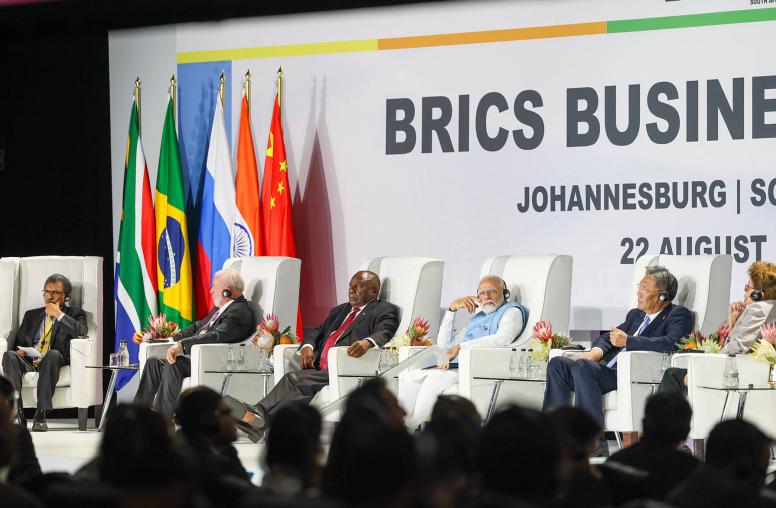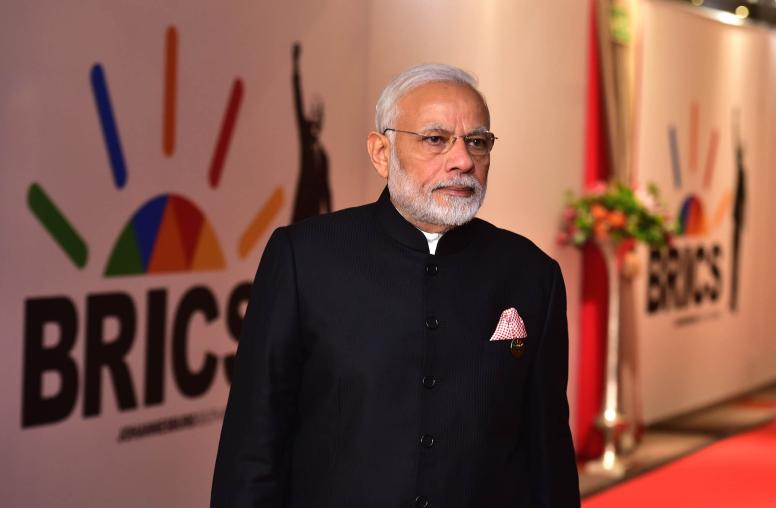India-Pakistan Needs Trump Administration’s Focus
Kashmir Attacks Show U.S. Must Consider Risk of Nuclear Conflict, Analysts Say
Relations between India and Pakistan are becoming less predictable as nationalist sentiments in India heighten political pressure there to escalate its response to clashes in the disputed territory of Kashmir, specialists on the two states said. The incoming administration of President-elect Donald Trump should develop clearer U.S. policies to ease strains between the nuclear-armed states, the analysts said at the U.S. Institute of Peace.

The discussion, in a USIP forum, followed a round of attacks in recent weeks across the Line of Control, a cease-fire line that divides the Indian- and Pakistani-administered sections of Kashmir. India’s announcement of a Sept. 29 retaliatory strike across that line into Pakistan-administered Kashmir was a paradigm shift in the view of many observers. India declared it conducted “surgical strikes” on sites in Pakistan-administered Kashmir that were serving as “launch pads” for Pakistani militant groups preparing to attack India. The strikes were retaliation for a Sept. 18 attack by militants on an Indian base in Kashmir.
“The fear of direct military conflict is real,” said Shamila Chaudhary, a former Pakistan director at the U.S. National Security Council. “We have to worry about less Indian restraint in the future,” she said. “So many attacks [in Indian-administered Kashmir] link back to Pakistan, I’m not sure we can say any more that no escalation is possible.”
Since the 1990s, India and many independent analysts have said Pakistan’s Inter-Services Intelligence Directorate covertly sponsored or supported groups such as Jaish-e-Muhammad (the Army of Muhammad) or Lashkar-e-Taiba (Army of the Pure), which have attacked military, government and civilian targets in India. Pakistan denies this.
Indian Nationalism, 'Surgical' Strike
As India and Pakistan now face each other, domestic and external sources of instability exist on both sides, the analysts said. Indian Prime Minister Narenda Modi won election in 2014 in part by running as a nationalist who would not be pushed around by Pakistan, said Sadanand Dhume, a fellow at the American Enterprise Institute. Anything that erodes Modi’s image as a strong leader will become a political liability as India moves toward its next parliamentary elections in 2019, and so “India is becoming much more hawkish in its public opinion and its politics,” he said.
Even so, the September “surgical strike,” as India called it, was designed to maximize domestic approval while minimizing international fallout, Dhume said. India didn’t use aircraft, went after the militants rather than the Pakistani military and immediately declared the book closed on the incident, he said.
Activity along the Line of Control by the Pakistani militant groups continues virtually unchecked, said Chaudhary, now at Johns Hopkins University’s School of Advanced International Studies. While Pakistan’s government has some interest in being able to control militant groups in the future, support for them continues within Pakistan and limits the government’s ability to constrain them, she said.
India’s strengthening relationship with the United States and Pakistan’s with China may promote stability—or may give the Indian and Pakistani authorities a feeling that they can use an allied “big brother” to win leverage in their conflict.
The India-Pakistan conflict has never been a priority in U.S. foreign policy and it’s unlikely to become one for the Trump administration, the analysts agreed. Despite the United States’ vital interest in averting any escalation of nuclear threats between the two countries, it has done little long-term planning to prevent it and generally engages the issue only when crises arise, Chaudary said. The India-Pakistan experts suggested the next administration would do well to bring new focus and coherence to U.S. policy.
Trump Administration, U.S. Priorities
Key points in the discussion included these:
- Although the United States has slashed aid to Pakistan amid U.S. frustration over Pakistan’s support for the Taliban insurgents in Afghanistan, Washington still needs a working relationship with Pakistani authorities, said Sameer Lalwani, deputy director of the South Asia Program at the Stimson Center. The U.S. needs Pakistani cooperation on intelligence, homeland security and counter-terrorism, the fight against Islamic State (ISIS) extremists, and stabilizing Afghanistan, he said. While the United States will not be able to force Pakistan to eliminate militant groups such as Jaish-e-Muhammad or Lashkar-e-Taiba, it can press Pakistani authorities to take steps to rein in their behavior and reduce the risks of escalation.
- The new administration needs to consider what problems the next India-Pakistan crisis could present to U.S. policymakers, said Toby Dalton, the co-director of the Nuclear Policy Program at the Carnegie Endowment for International Peace. He asked what might happen if India responds far more harshly to an attack across the Line of Control and if U.S. satellites then detect Pakistan moving nuclear weapons. What would the United States do? Caution Pakistan? Provide coordinates to India to permit a strike on those weapons? Act as a channel of communication between Indian and Pakistani authorities? To meet such threats, it’s critical that the United States maintain intelligence ties with each country, apart from any other issues in its relations with them, he said.
- The U.S. effort to forge tighter bonds with India while ignoring India’s concerns about Pakistan is “a circle that can no longer be squared,” Dhume said. Future attacks against India stemming from Pakistan will spur demands for retaliation amid India’s increasingly nationalist politics, he said. The conventional U.S. response of urging restraint, successful in the past, now will be in tension with the move toward closer ties, Dhume said. U.S. policymakers, for whom India-Pakistan relations is likely to become a lower priority in the next administration, should be prepared, he said.
- Every new administration wants to solve the India-Pakistan standoff, Chaudhary said—a possibility that President-elect Donald Trump mentioned in October as he met Indian-American voters during the election campaign. “That’s not going to work, be realistic,” she said. More modest goals for the administration could be to consolidate or better coordinate U.S. policymaking on India and Pakistan, she said. Chaudhary suggested strengthening private diplomacy to build communication between the countries and limiting public statements, which “don’t work well in the region.”
The solutions for conflicts dividing India and Pakistan are well known, said Moeed Yusuf, USIP’s associate vice president for Asia programs. Acknowledging the difficulties of bringing India and Pakistan to any agreement, he asked, “Is it really impossible? At the end of the day, normalization solves everyone’s problems.”



